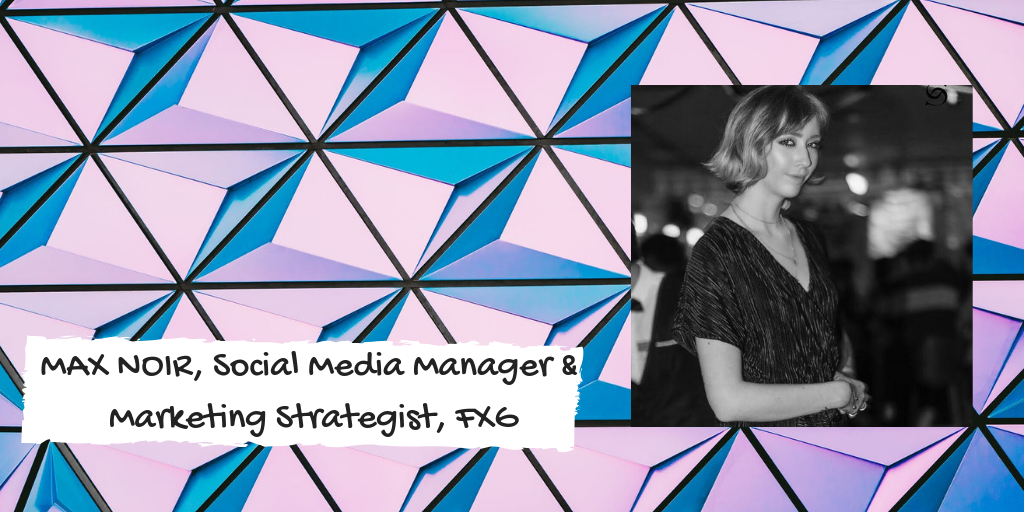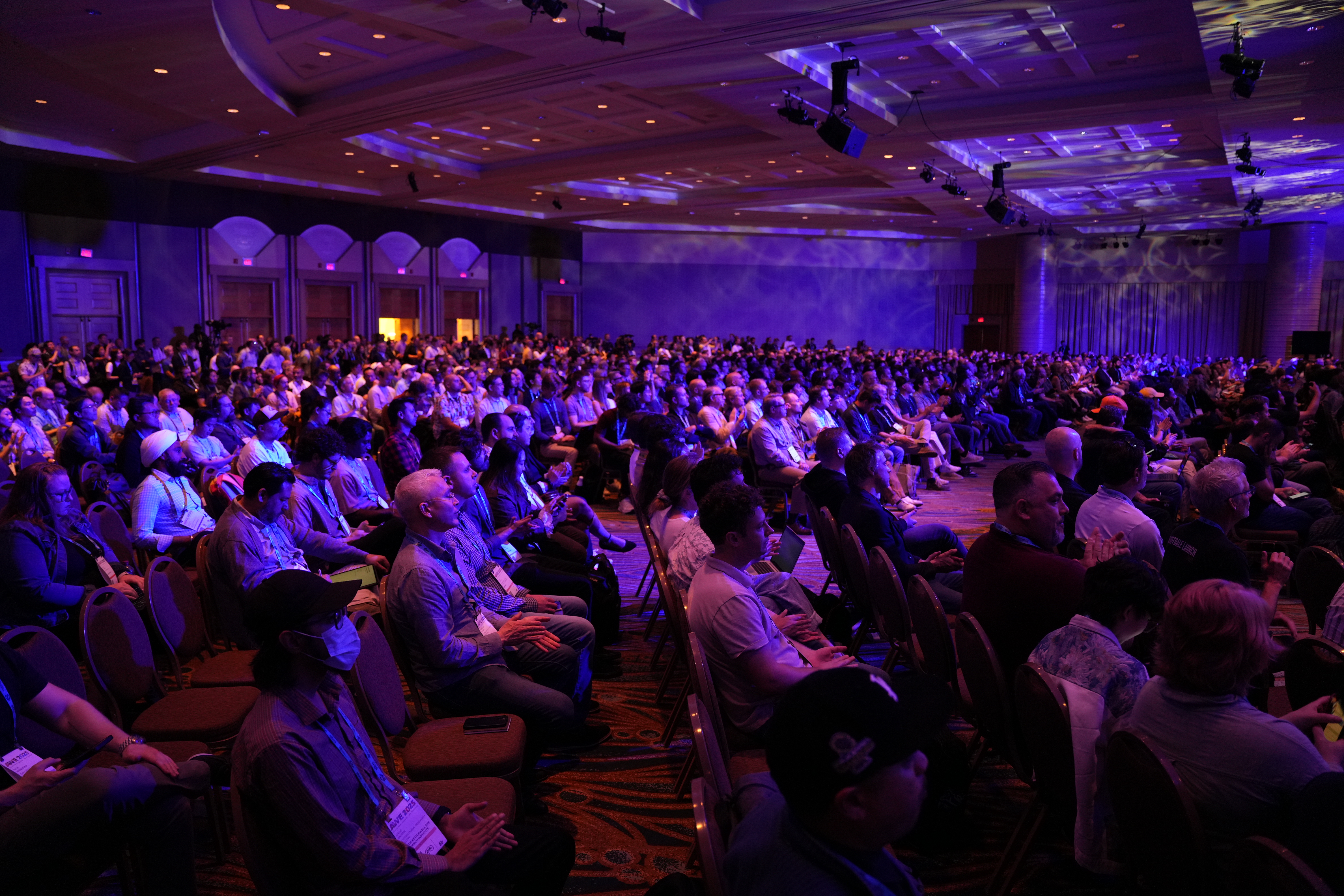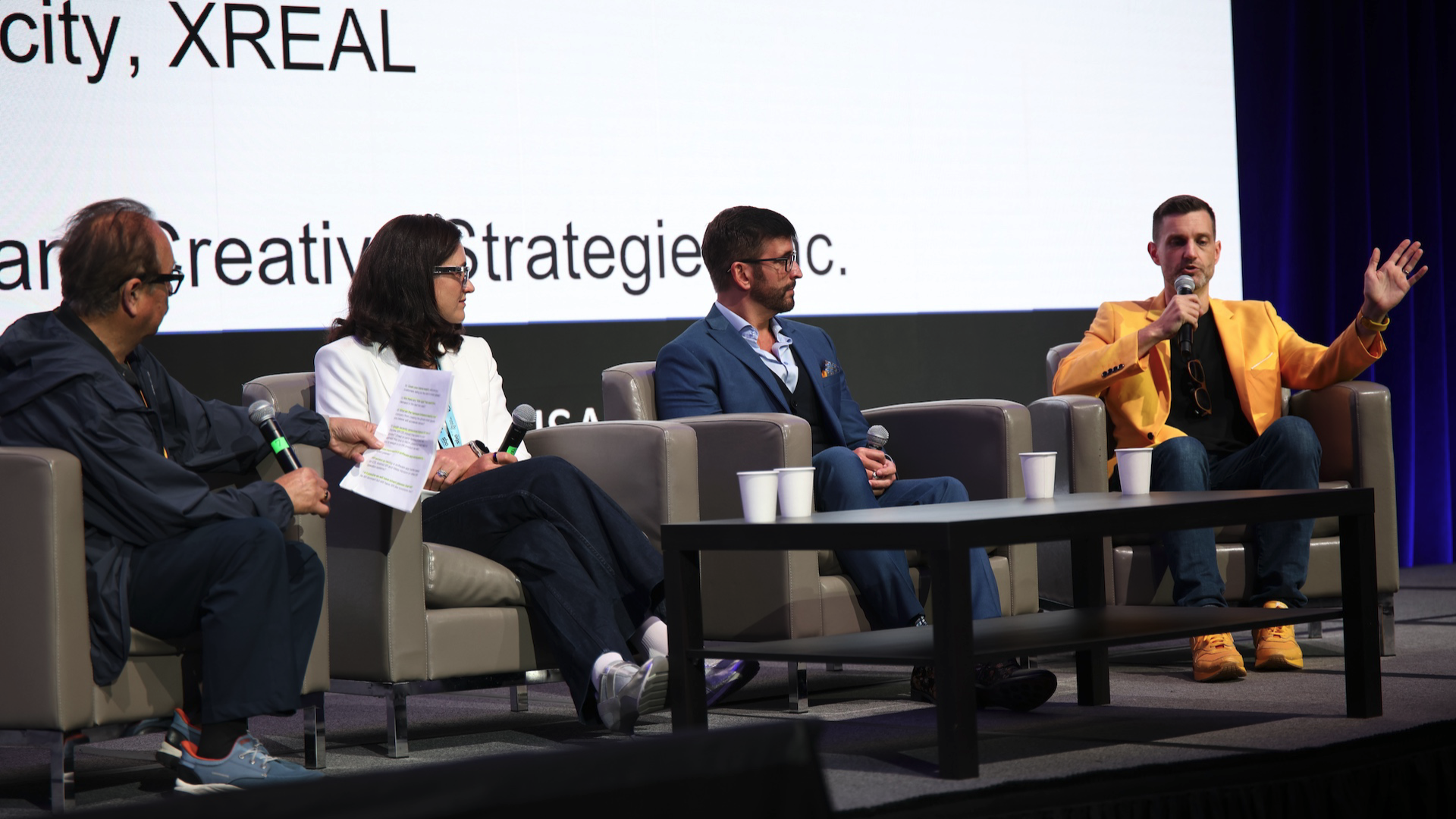When it comes to achieving gender equality, the technology industry is behind the U.S. economy as a whole. Women are paid less, receive less VC funding, and occupy fewer leadership and technical positions compared to men. So, for this Women's History Month, I am interviewing real women working in immersive tech, women who challenge the idea that the tech industry lacks visible female role models. Enjoy!
Emily: To begin, could you provide us with a little background on yourself and your career?
Max: I grew up in a rural area of Pennsylvania, USA. Living in a place so rural with a less-than-thriving tech community, finding work outside of the service industry was challenging. Somewhow, my work experiences all landed in Social Media and Marketing, specifically in various sectors of the art scene, from mid-century modern art to 3D printing. In September of 2017, I moved to Hangzhou, China to continue academic research in Global Studies and begin learning Mandarin Chinese. After some time there, I stumbled upon a job listing that combined all of my favorite things: Technology, art and social media. After an extensive interview process, I landed my current job as Social Media Manager for a Chinese VR localization and content and technological development company called FXG. I've been working for the company for just over a year now and am currently living in New York City, setting up our new North American branch: FXG Video of America. I am ecstatic to see where the industry is heading and how far it has come since my first experience years ago in my friend's living room with the bulky equipment powering his DK1.
Emily: What is it like as a woman working in AR/VR?
Max: For me thus far, it has been wonderful. I feel lucky to be working at such a supportive company, which is made up of an almost 50/50 male/female split and operates without notions of hierarchy. I am very aware; however, that this isn't an overarching feeling for all the women in AR/VR, and I am working towards and awaiting the day that feeling equal doesn't translate into being "lucky".
Emily: What challenges do you face that your male colleagues and peers don't?
Max: There's definitely a stigma that stretches across a variety of industries and is very prevalent in tech, that women primarily work in sectors like marketing, PR, HR, etc. As a Social Media Manager and marketer, it's a huge part of my job to be conversational in the technological vernacular of my industry, surrounding industries, and specifically how my company's products compare to others'. A consistent challenge I and other women face, which I don't believe men face as often, is the assumption that we don't understand technological concepts and vocabulary. I wouldn't be able to do my job successfully without at least a base understanding of the technologies I'm working around.
Emily: Have you ever felt judged or overlooked because of your gender?
Max: Sure, especially at networking events, where it's common for women to feel left out or disregarded during tech-heavy conversations. When trying to participate in these discussions, I get two common reactions towards my display of knowledge: Over excitement or adverse responses. It seldom feels equal and supportive, tending to have a sort of "hot or not" vibe. This creates a more hostile space for me to ask questions about things I want to know more about, with a domino effect of unproductiveness. My appreciation goes out to all of you supportive spaceholders!
Emily: What about the user experience for women; how do the devices fit and perform for women?
Max: While I have yet to try a lot of the crazy stuff, including haptic feedback suits, I can say that I was supposedly the first person to use the KAT Walk Mini in high-heels (with much success), so points to them and to me... I will say that I have yet to find a headset that fits my head comfortably and sturdily.
Emily: What is the most critical issue for women in AR/VR?
Max: Our skills and professionalism aren't always regarded with equal value. And, of course, post-meetup messages about our outfits or our smiles being pretty as opposed to remarking on our contributions to the event and industry ;)
Emily: Do you believe there's a lack of content for women AR/VR users?
Max: Not particularly. I suppose this depends on how one defines male/female content. I see a rapidly growing number of female content developers along with an influx of content coming out for a large variety of industries outside of gaming, so I would say overall, no. I believe VR is the most groundbreaking technological advancement thus far for content production for all audiences.
Emily: What is your advice to women working in AR/VR?
Max: Work really hard. Don't second guess or justify instances that feel wrong. Speak up. Support each other. If you're going to wear heels, own that s*** and stand at your tallest. Be proud of each and every victory, no matter how big or small.
Emily: What would you like to say to men in the space? What should they be doing to help women in tech?
Max: Thank you to all of the wonderfully supportive men out there. It's important that men are making a conscious effort to notice and stand up against gender-based and other inequalities within and outside of the work space. The best thing to do is acknowledge that an issue has validity and start paying more attention to it. Many amazing men in my life have been in denial about gender inequalities due to their lack of direct experience. This doesn't make them bad men but it does make them ignorant. So, listen to the experiences of others and pay more attention. Don't include women in conversations and/or events simply to appease, but because you find their contributions and perspectives genuinely valuable.
Emily: What is your greatest hope for the future of AR/VR?
Max: I am deeply hopeful that AR and VR will be the most dramatic technologies thus far in teaching empathy and diminishing biases. I know that AR/VR can be used to promote equality in an infinite amount of demographical inequalities around the world. Video games are fun and without a doubt bring people together, but using these technologies for storytelling and understanding one another willbe positively evolutionary.
Max Noir, Social Media Manager & Marketing Strategist, FXG
Emily: To begin, could you provide us with a little background on yourself and your career?
Max: I grew up in a rural area of Pennsylvania, USA. Living in a place so rural with a less-than-thriving tech community, finding work outside of the service industry was challenging. Somewhow, my work experiences all landed in Social Media and Marketing, specifically in various sectors of the art scene, from mid-century modern art to 3D printing. In September of 2017, I moved to Hangzhou, China to continue academic research in Global Studies and begin learning Mandarin Chinese. After some time there, I stumbled upon a job listing that combined all of my favorite things: Technology, art and social media. After an extensive interview process, I landed my current job as Social Media Manager for a Chinese VR localization and content and technological development company called FXG. I've been working for the company for just over a year now and am currently living in New York City, setting up our new North American branch: FXG Video of America. I am ecstatic to see where the industry is heading and how far it has come since my first experience years ago in my friend's living room with the bulky equipment powering his DK1.
Emily: What is it like as a woman working in AR/VR?
Max: For me thus far, it has been wonderful. I feel lucky to be working at such a supportive company, which is made up of an almost 50/50 male/female split and operates without notions of hierarchy. I am very aware; however, that this isn't an overarching feeling for all the women in AR/VR, and I am working towards and awaiting the day that feeling equal doesn't translate into being "lucky".
Emily: What challenges do you face that your male colleagues and peers don't?
Max: There's definitely a stigma that stretches across a variety of industries and is very prevalent in tech, that women primarily work in sectors like marketing, PR, HR, etc. As a Social Media Manager and marketer, it's a huge part of my job to be conversational in the technological vernacular of my industry, surrounding industries, and specifically how my company's products compare to others'. A consistent challenge I and other women face, which I don't believe men face as often, is the assumption that we don't understand technological concepts and vocabulary. I wouldn't be able to do my job successfully without at least a base understanding of the technologies I'm working around.
Emily: Have you ever felt judged or overlooked because of your gender?
Max: Sure, especially at networking events, where it's common for women to feel left out or disregarded during tech-heavy conversations. When trying to participate in these discussions, I get two common reactions towards my display of knowledge: Over excitement or adverse responses. It seldom feels equal and supportive, tending to have a sort of "hot or not" vibe. This creates a more hostile space for me to ask questions about things I want to know more about, with a domino effect of unproductiveness. My appreciation goes out to all of you supportive spaceholders!
Emily: What about the user experience for women; how do the devices fit and perform for women?
Max: While I have yet to try a lot of the crazy stuff, including haptic feedback suits, I can say that I was supposedly the first person to use the KAT Walk Mini in high-heels (with much success), so points to them and to me... I will say that I have yet to find a headset that fits my head comfortably and sturdily.
Emily: What is the most critical issue for women in AR/VR?
Max: Our skills and professionalism aren't always regarded with equal value. And, of course, post-meetup messages about our outfits or our smiles being pretty as opposed to remarking on our contributions to the event and industry ;)
Emily: Do you believe there's a lack of content for women AR/VR users?
Max: Not particularly. I suppose this depends on how one defines male/female content. I see a rapidly growing number of female content developers along with an influx of content coming out for a large variety of industries outside of gaming, so I would say overall, no. I believe VR is the most groundbreaking technological advancement thus far for content production for all audiences.
Emily: What is your advice to women working in AR/VR?
Max: Work really hard. Don't second guess or justify instances that feel wrong. Speak up. Support each other. If you're going to wear heels, own that s*** and stand at your tallest. Be proud of each and every victory, no matter how big or small.
Emily: What would you like to say to men in the space? What should they be doing to help women in tech?
Max: Thank you to all of the wonderfully supportive men out there. It's important that men are making a conscious effort to notice and stand up against gender-based and other inequalities within and outside of the work space. The best thing to do is acknowledge that an issue has validity and start paying more attention to it. Many amazing men in my life have been in denial about gender inequalities due to their lack of direct experience. This doesn't make them bad men but it does make them ignorant. So, listen to the experiences of others and pay more attention. Don't include women in conversations and/or events simply to appease, but because you find their contributions and perspectives genuinely valuable.
Emily: What is your greatest hope for the future of AR/VR?
Max: I am deeply hopeful that AR and VR will be the most dramatic technologies thus far in teaching empathy and diminishing biases. I know that AR/VR can be used to promote equality in an infinite amount of demographical inequalities around the world. Video games are fun and without a doubt bring people together, but using these technologies for storytelling and understanding one another willbe positively evolutionary.



